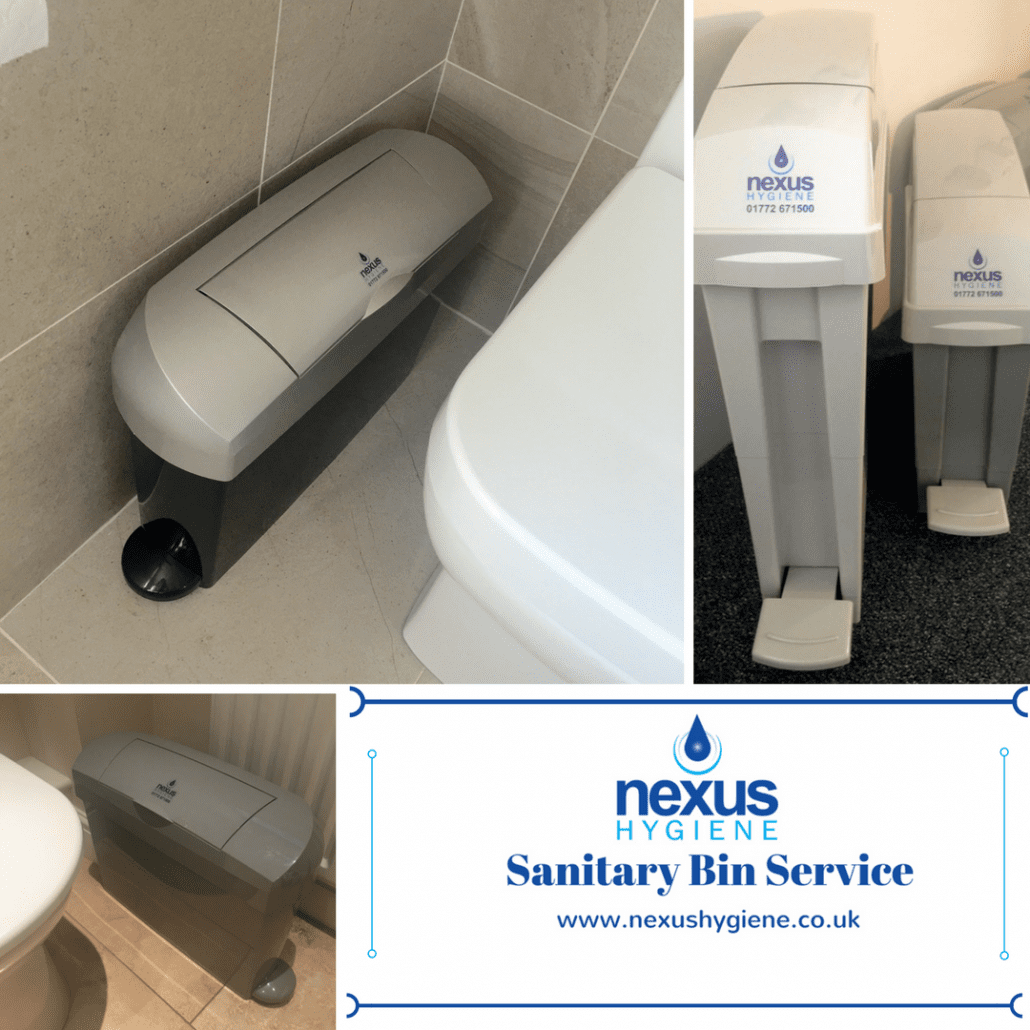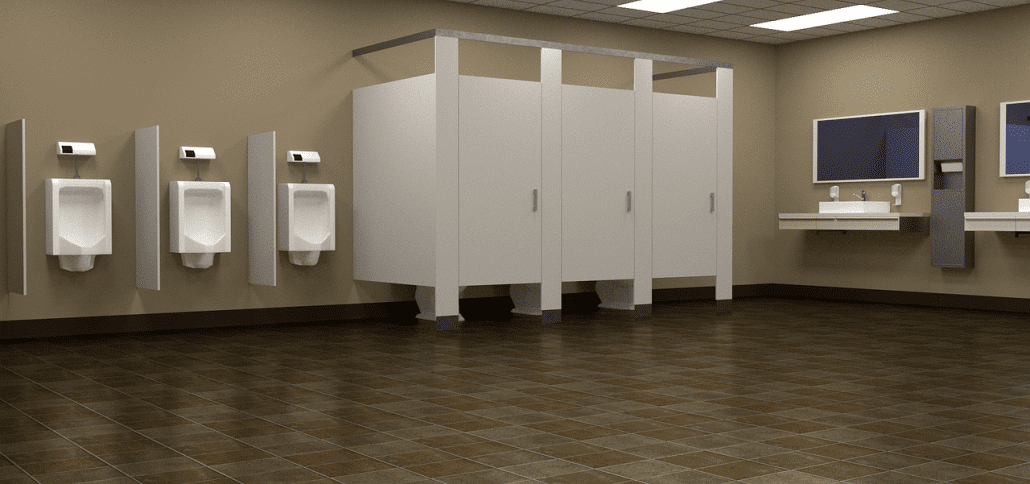
It’s not a taboo subject! It’s a fact of life: women menstruate. If you employ female members of staff or have female visitors or customers at your business premises, then you have a legal obligation to provide them with suitable facilities to dispose of sanitary waste. Every woman who has the need to use a sanitary bin would like to find it clean, functional and accessible.

Safe Disposal of Sanitary Waste
By law, you are required to provide a disposal system of sanitary products for females in your business establishment. The waste systems should actively control odour and fight bacteria. The removal and disposal of waste items must be completed by a registered waste carrier*.
The Workplace (Health, Safety and Welfare) Regulations 1992 states that:
“In the case of water closets used by women, suitable means should be provided for the disposal of sanitary dressings.”
This duty is further supported by the Water Industries Act 1991. This Act states:
“No item should be flushed that could cause a blockage within the sewer or drain.”
Before this Act was introduced in 1991, it was quite commonplace for sanitary products to be flushed down the toilet. As drainage pipes in domestic settings are only, on average, four inches in diameter, they are not designed to carry anything more than toilet tissue. By flushing sanitary towels and tampons, it can result in costly plumbing call-outs to solve heavy blockages within the drainage system and also causes an impact on environment. Water UK says that more than 80% of flooding in the UK is due to blockages in sewers. Even small things like cotton buds or dental floss should never be disposed of by flushing down the toilet as this all adds to waste that causes serious environmental impacts.

Interestingly, and perhaps a fact that many people wouldn’t be aware of, is that men’s washrooms can have a requirement for a sanitary bin. A study found that 12% of German men – that’s over five million – suffer from urinary incontinence, especially following prostate surgery. In 2013, it became legislation in Germany for all establishments to have at least one hygiene bin with a lid facility in men’s washrooms.

It is estimated that between three and six million people in the UK suffer from incontinence and it isn’t limited to one specific gender. Vectair Systems are campaigning for all men’s washrooms to have a sanitary bin in the UK. Paul Wonnacott, Managing Director of Vectair Systems says:
“We have taken steps to help women and we would like to help men too. We hope that, through spreading the word about men’s washroom needs, we can encourage public places like hotels, restaurants and offices to provide a suitable and discreet solution for men’s sanitary waste.”
Providing suitable sanitary bins within your premises is an essential consideration. Some units are not suitable for commercial use. The containment aspect of the contents of the sanitary bins is also critical. A unit needs an effective seal to ensure the odour does not permeate the washroom: 89% of survey respondents of an American survey said that the bad odour of a washroom would put them off returning to the establishment.
The best way of ensuring that your sanitary bins are kept in tip-top condition and are emptied of a timely fashion, is to have a sanitary bin service. This takes away the headache of your washroom hygiene and allows your business to provide an essential washroom product without the worry of maintaining it.
As an Employer, under The Environment Protection Act 1990, you have a Duty of Care to ensure that all washroom waste products are managed until the final stage of disposal*.
Nexus Hygiene’s Simon Woodhead says:
“Aside from the legal requirement of a business to provide quality sanitary waste disposal facilities, it can give the wrong message about your business if these facilities are not accessible. Staff and customers deserve to have their personal wellbeing and morale thought about. It makes good business ethics to have serviced washroom hygiene facilities.”
Feminine hygiene and sanitary waste disposal can be difficult subjects to discuss, but they needn’t be. As a business, by taking this hygiene issue seriously, you will display a positive image of responsibility and care to all who enter your premises. The old adage of ‘First Impressions Last’ applies to washroom hygiene too! With the age and saturation of social media, a business needs to be aware of hygiene downfalls to avoid any negative reviews or even snapshots of dirty washrooms that could circulate the internet and damage reputation.
*Nexus Hygiene Ltd is a Registered Waste Carrier approved by the Environment Agency to help carry out all of your legal requirements under the Approved Code of Practice, Workplace (Health, Safety & Welfare) Regulations 1992. According to our environmental best practice policy, all of our sanitary and clinical waste is disposed of by clinical incineration, rather than disposal by landfill.
Nexus Hygiene Ltd is a family-owned hygiene service company, based in Preston, Lancashire. We are specialists in all washroom services. Our areas of coverage include:
Accrington – Bamber Bridge – Blackburn – Blackpool – Bolton – Burnley – Bury – Chester – Chorley – Cleveleys– Clitheroe – Colne – Darwen – Fleetwood – Fulwood – Garstang – Heysham – Kirkham – Lancaster – Leigh – Leyland – Longridge – Lymm – Lytham – Morecambe – Nelson – Oldham – Padiham – Penwortham – Preston– Rossendale – Runcorn – Skelmersdale – Southport – St Anne’s – Stockport – Warrington – Wigan – Wirral


